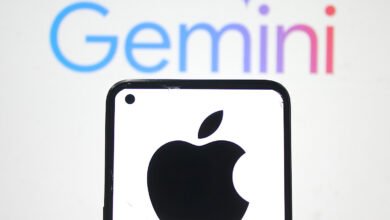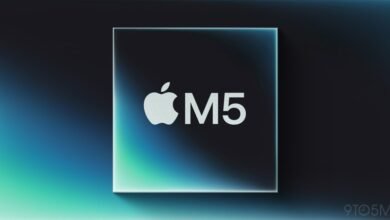Two New Signs Siri Is Finally Getting Better

▼ Summary
– The author remains skeptical about Apple delivering an improved Siri, despite recent encouraging signs.
– Apple CEO Tim Cook stated that a more personalized Siri is in progress and expected to release next year, showing some confidence.
– Apple avoided making Siri promises at the iPhone 17 keynote to prevent repeating past announcement mistakes.
– Much of the new Siri experience will rely on Google Gemini models running on Apple’s Private Cloud Compute servers.
– Apple’s use of third-party AI models increases the credibility of a smarter Siri, but significant integration challenges remain.
Recent developments suggest that Apple’s long-awaited Siri upgrade might finally be gaining real momentum. While skepticism remains warranted given Apple’s history of delayed AI announcements, two significant indicators have emerged that could signal genuine progress toward a more capable virtual assistant. These developments offer the first tangible reasons for optimism about Siri’s future capabilities.
During Apple’s latest financial results presentation, CEO Tim Cook made a notably specific commitment regarding Siri’s development timeline. He stated that the company is “making good progress” toward “a more personalized Siri” and expects to release the enhanced version next year. This represents a meaningful shift from Apple’s previous approach of avoiding specific timelines altogether after earlier promises fell short. The fact that Cook felt confident enough to publicly commit to a 2026 release suggests internal testing must be showing promising results.
Perhaps the most revealing development comes from industry reports indicating Apple plans to integrate Google’s Gemini AI models into Siri’s infrastructure. This strategic partnership would represent a fundamental shift in Apple’s approach to artificial intelligence. Rather than attempting to build everything in-house, Apple appears to be leveraging established AI technology while maintaining its privacy standards through Private Cloud Compute servers. This hybrid approach could potentially deliver the sophisticated capabilities users expect while preserving Apple’s commitment to data security.
The decision to potentially incorporate third-party AI models addresses what has been perhaps the biggest challenge facing Siri’s development. The rapidly advancing capabilities of competing assistants like ChatGPT, Claude, and Amazon’s conversational Alexa create a moving target that’s exceptionally difficult to hit through internal development alone. By the time Apple’s upgraded Siri launches in 2026, the benchmark for what constitutes a “smart” assistant will have risen significantly from today’s standards.
This integration approach presents its own technical hurdles, particularly around seamless ecosystem integration. Ensuring Siri maintains its deep integration with Apple devices and services while relying on external AI models represents a substantial engineering challenge. The success of this implementation will ultimately determine whether users experience a cohesive, intelligent assistant or a fragmented combination of technologies.
What makes this new direction particularly promising is that it acknowledges Apple’s strengths while addressing its limitations in AI development. The company excels at hardware-software integration and user experience design, while other tech giants have demonstrated superior capabilities in large language model development. This collaborative approach could potentially deliver the best of both worlds rather than forcing Apple to play catch-up in an area where it has consistently trailed competitors.
While these developments don’t guarantee success, they represent the most credible path forward for Siri’s evolution. The combination of a public commitment from leadership and a pragmatic technical approach suggests Apple may have found a viable strategy to revitalize its virtual assistant. The coming months will reveal whether these promising signs translate into the intelligent, responsive Siri that Apple users have been anticipating for years.
(Source: 9to5Mac)





